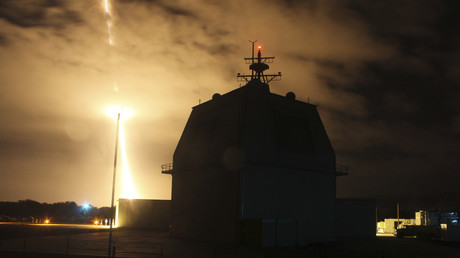How Nuro plans to spend Softbank’s $940 million
Autonomous delivery startup Nuro is bursting with ideas since SoftBank invested nearly $1 billion in February, new filings reveal.
A recent patent application details how its R1 self-driving vehicle could carry smaller robots to cross lawns or climb stairs to drop off packages. The company has even taken the step of trademarking the name “Fido” for delivery services.
“We think there’s something neat about that name,” Nuro founder Dave Ferguson told TechCrunch. “It’s friendly, neighborly and embodies the spirit of a helper that brings you things. It wasn’t intended to extend towards literal robot dogs, although some of the legged platforms that others are building could be very interesting for this last 10-foot problem.”
Another section of Nuro’s patent shows the R1 delivering piping hot pizza and beverages, prepared en route in automated kitchens.
“We tried to build a lot of flexibility into the R1’s compartment so we could serve all the applications that people will be able to think of,” Ferguson said. “A coffee machine is actually a pretty good one. If you go to your local barista, those machines are incredibly expensive. Amortizing them over an entire neighborhood makes sense.”
As automated technologies mature, companies are focusing less on simply getting around and more on how services will connect with actual customers. Delivering goods instead of passengers also means fewer regulations to navigate.
That opportunity has prompted a number of companies, including e-commerce and logistics giant Amazon, FedEx, and numerous startups to explore autonomous delivery. At CES this year, Continental unveiled a prototype dog-shaped robot for last-yard deliveries, while Amazon has unveiled a sidewalk robot called Scout that is already delivering packages to homes.
The first company to scale automated driving and delivery could start building revenue while those aiming for autonomous taxis are stuck in a maze of laws, safety concerns and consumer skepticism.
Origin story
Softbank’s capital allows Nuro’s founders to run with its many ideas. But even in its earliest days, they benefited from an early injection of cash.
Nuro was founded in June 2016 by Ferguson and another former Google engineer, Jiajun Zhu, after they received multi-million dollar payouts from the company’s infamous Chauffeur bonus plan. Chauffeur bonuses were intended to incentivize engineers who stuck with Google’s self-driving car project. However, the plan’s structure meant that anyone who left after the first payout in 2015 would also receive a large lump sum.
Lead engineer Anthony Levandowski appears to have earned over $125 million from the plan. He used some of the money to start Otto, a self-driving truck company that was acquired by Uber and subsequently became the focus of an epic patent and trade secrets theft lawsuit.
Court filings from that case suggest that Ferguson and Zhu received around $40 million each, although Ferguson would not confirm this. (Another Chauffeur alum, Russell Smith, got a smaller payout and quickly joined Nuro as its hardware lead).
Nuro completed its first Series A funding round in China just three months later, in a previously unreported deal that gave NetEase founder Ding Lei (aka William Ding) a seat on Nuro’s board. Ding was China’s first Internet and gaming billionaire, and was reportedly once the wealthiest person in China. However, his business empire, which spans e-commerce, education and pig farming, recently laid off large numbers of staff.
“William has been a board member and a strong supporter from the very start. But he’s not directing company decisions,” says Ferguson.
A second, U.S.-based round in June 2017 raised Nuro’s total Series A funding to $92 million.
A Nuro spinout
Nuro started pilot grocery deliveries last summer with a Kroger supermarket affiliate in the Phoenix suburb of Scottsdale. The pilot initially used modified Toyota Prius sedans and transitioned in December to its R1 vehicle. “We’re super excited about the application area,” says Ferguson. “87 percent of commerce is still local and 43 percent of all personal vehicle trips in the U.S. are for shopping and running errands.”
Meanwhile, Uber’s self-driving truck program, which had begun with the acquisition of Otto, was on its last legs. Although the program was not publicly canned until July 2018, many of its key personnel left in May. The LinkedIn profiles of engineers Jur van den Berg, Nancy Sun and Alden Woodrow show them going straight from Uber to found Ike, another self-driving truck startup, the same month.
When Ike came out of stealth mode in October, Nuro characterized its relationship with the new company as a partnership, where “we gave Ike a copy of our autonomy and infrastructure software and, in exchange, Nuro got an equity stake in Ike.”
In reality, Ike was more of a spinout. California and Delaware business records show that Ike was not incorporated until July, and shared office space with Nuro until at least the beginning of September. Ike’s founding engineers actually worked at Nuro after leaving Uber. Van den Berg can even be seen in a Nuro team photo that was shot in June and reproduced in Nuro’s Safety Report, wearing a Nuro T-shirt.
Ferguson confirmed that all three Ike founders had worked at Nuro before starting Ike.
“We are always looking for opportunities where the tech that we’ve built could help,” Ferguson said. “Trucking was a really good example, but we recognized that as a company, we couldn’t spread ourselves too thin. It made sense for both sides for the Ike co-founders to build their own independent company.”
Ike CEO Woodrow told TechCrunch recently that it’s using Nuro’s hardware designs and autonomous software, as well as data logging, maps and simulation systems. It raised $52 million in its own Series A in February.
Not to be outdone, Nuro quickly followed with an announcement of a $940 million investment by the SoftBank Vision Fund, in exchange for what Ferguson calls a “very, very significant ownership stake.” Nuro had been introduced to SoftBank after talks with Cruise fell through.
Thousands of bots
Apart from robotic dogs, what does the future hold for a newly cash-rich Nuro?
“We’re very excited about the Scottsdale pilot, but it’s basically one grocery store in one ZIP code,” says Ferguson. Shortly after our interview, Nuro announced that it would be expanding its delivery service to four more ZIP codes in Houston, Texas.
“Next year and onwards, we want to start to realize the potential of what we’re building to eventually service millions of people” Ferguson said. We’re aggressively expanding the number of partners we’re working with and we’re working on how we manufacture a vehicle at a large scale.”
Nuro will likely to partner with an established auto OEM to build a fleet of what Ferguson hopes will become tens or hundreds of thousands of driverless vehicles. Last week, it petitioned the National Highway Traffic Safety Administration (NHTSA) for exemptions to safety standards that do not make sense for a driverless vehicle – like having to install a windshield or rearview mirrors.
Nuro told NHTSA that it wants to introduce up to 5,000 upgraded vehicles called the R2X, over the next two years. The electric vehicles would have a top speed of 25 miles per hour and appear very similar to the R1 prototype operating in Arizona and Texas today. The R2X will have 12 high-def cameras, radars, and a top-mounted LiDar sensor. Nuro said it would not sell the vehicle but “own and centrally operate the entire fleet of R2Xs through partnerships with local businesses.”
“Providing services is also very expensive,” Ferguson explained. “Look at Uber or Lyft. As we scale up to the population we’re trying to serve and the number of verticals we’re looking at, it requires capital to operate until we’re profitable, which will not happen this year.”
Read more
March 23, 2019 at 06:30AM
from TechCrunch
via IFTTT




No comments